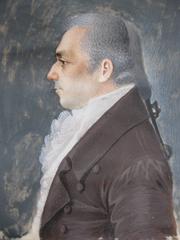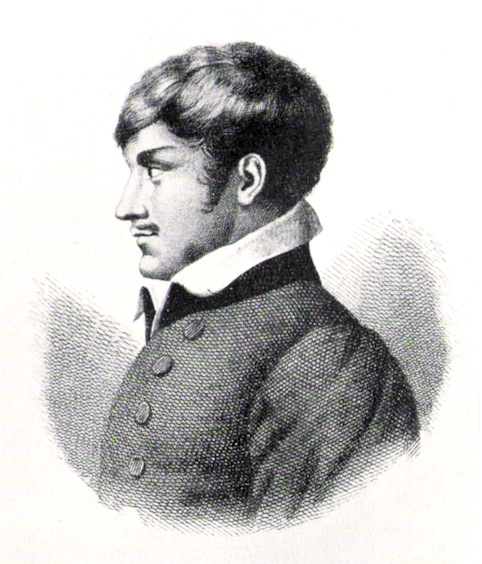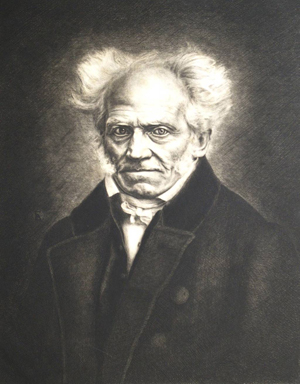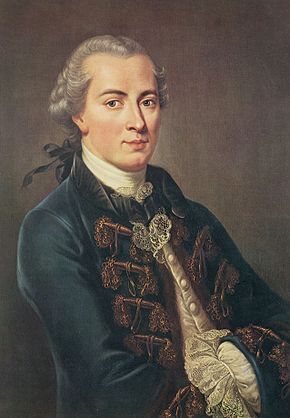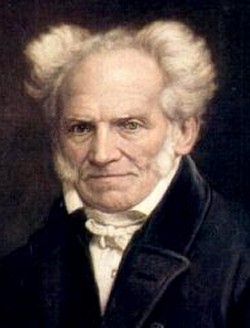Gottlob Ernst Schulze
Gottlob Ernst Schulze, known as Aenesidemus - Schulze ( born August 23, 1761 Heldrungen, Thuringia, † January 14, 1833 in Göttingen ) was a German philosopher.
Biography
Gottlob Ernst Schulze was born on August 23, 1761, the son of the manager at Castle Heldrungen in Thuringia. He attended from 1774-1780 the famous Saxon Pforta at Naumburg on the Saale and began in 1780 to study theology, logic and metaphysics at the University of Wittenberg. In 1783 he was Master of Philosophy and professor in Wittenberg. The first volume of his work plan of Philosophy appeared in 1788 and earned him a reputation as a professor of philosophy at the University of Helmstedt. Here he spent over 20 years working and wrote his major writings. 1810 the University was dissolved and joined with the University of Göttingen.
In Göttingen Schulze further twenty-two years through worked as a professor. Among his pupils was, inter alia, Arthur Schopenhauer, who studied medicine in Göttingen. This could hear him his first philosophical College on psychology and metaphysics. On the influence of the teacher on student reports Wilhelm von Gwinner, that it was Schulze, of Schopenhauer " first about his profession clarifying and thereby caused, from now on all his studies for the service of the Queen of Sciences set up " ( Schopenhauer's life, 1910, p 62). Schulze is considered an important skeptics of his time and one of the most astute critic of Immanuel Kant: This speaks of us unknown thing in itself and refers to the category of causality; but since the causality as mere subjective form of thought by Kant himself only to the phenomena (or ideas ), but can not be applied to things in themselves, things can cause no ideas. Schulze does this in his 1792 published anonymously font Aenesidemus (p. 128-129, 263-264 and 304-306 ); Schopenhauer repeated this criticism. But the Aenesidemus (named after the Ainesidemos, a Pyrrhonian skeptic and probably contemporaries of Cicero ) is particularly critical of ( crushing ) Karl Leonhard Reinhold's Basic Philosophy. Through this disassembly Reinholds and criticism of Kant confused and insecure, Johann Gottlieb Fichte was prompted to develop his theory of science to help the philosophy as a foundation in his view, still missing as a science. Schulze's skepticism has thus had considerable influence contributed to the emergence of the so-called ' German Idealism '. In the discussions that triggered his Aenesidemus, he has barely mixed, later weakened the importance of skepticism and - approximated in epistemological terms, the so-called religious philosophy of Friedrich Heinrich Jacobi - especially with its "natural realism".
Schulze also influenced Johann Friedrich Herbart and Jakob Friedrich Fries. He died on 14 January 1833 in Göttingen.
Works (selection)
- Plan of the Philosophical Sciences, Wittenberg and Zerbst 1788 (Vol. 1) and 1790 (Vol. 2).
- Aenesidemus or on the foundations of the delivered by the Professor Reinhold in Jena elementary philosophy. In addition to a defense of skepticism against the pretensions of the critique of reason, without place, 1792.
- Critique of theoretical philosophy, 2 volumes, Hamburg 1801.
- Principles of general logic, Helmstedt 1802.
- Encyclopedia of the Philosophical Sciences, for the use of his lectures, Göttingen 1814.
- Psychological Anthropology, 2 volumes, Göttingen 1816.
- Philosophical doctrine of virtue, Göttingen 1817.
- About human knowledge, Göttingen 1832.

